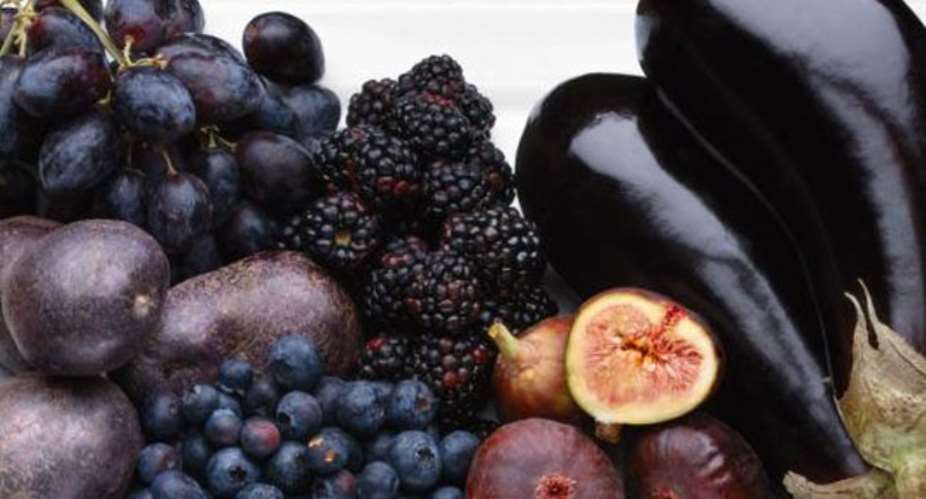What you eat might be impacting how well your products work. (Photo: Henry Leutwyler)
If you're spending money on your skin, you want the best results from your products. But did you know that your diet can either boost or detract from your product regimen? We reached out to Dr. David Colbert, M.D ., founder and head physician of New York Dermatology Group and Colbert MD Skincare ; and Alexis Wolfer , certified holistic nutritionist and author of The Recipe for Radiance , on how to improve your skin from the inside out.
For all skin types. In addition to avoiding excess sugar, fried, salty and and processed food, which detract from product efforts, Dr. Colbert recommends increasing intake of antioxidants like organic vegetables, fruits, nuts, green tea, and dark chocolate. 'I'd also recommend foods highly saturated with vitamins C and E,' says Colbert. 'Vitamin E (sunflower seeds and spinach) protects against UV damage, and Vitamin C (oranges, grapefruit and tomatoes) works with collagen production and against free radical and oxidative damage.' Of course, staying hydrated remains as important as every. Drinking water consistently throughout the day will result in better skin.
For acne prone skin. 'Persistent, chronic acne is greatly affected by hormones and diet, which usually comes down to dairy and gluten,' explains Wolfer, who recommends removing these two items from your diet for 21 days then reintroducing carefully to see if either should be permanently removed. She also recommends a colorful diet packed with beta-carotene. 'Think bright orange: carrots, sweet potatoes, and pumpkin,' she says. 'Topical Vitamin A (retinol) helps skin turnover, and these foods help even more from the inside.' She also says increasing intake of healthy fats like avocado, nuts, seeds, and/or raw coconut oil can counteract drying medications.
For dry skin, eczema, and rosacea. 'The best defense against these conditions is a diet rich in antioxidant vitamins and minerals,' says Colbert. 'It's been suggested by research that certain antioxidants vitamin C, vitamin E, selenium, omega-3 fatty acids, and vitamin A (in the form of beta carotene) nourish and protect skin.' Wolfer suggests avoiding drying foods, noting that anything that makes your mouth dry will do the same thing to your body. She adds that sodium and processed foods should also be avoided. Colbert also recommends avoiding spice if you have rosacea. 'Spicy foods always tend to cause flare-ups with this condition,' he says.
To promote anti-aging. 'Avoid inflammatory foods like dairy, gluten, citrus fruits, and nightshade vegetables, like eggplant and tomatoes,' advises Wolfer. In addition to the beta carotene-saturated foods prescribed for acne-prone skin, she also recommends boosting collagen-infusing products with omega-3 fatty acids like salmon, chia seeds, and walnuts.
The next time you spend money on a product and you don't think it's working, consult your diet before you declare it unworthy of your regimen. A dietary tweak here and there could be the major change you're looking for to boost product results and get the skin you've wanted for so long.





 We’ll protect state wealth from opaque deals – Prof Jane Naana
We’ll protect state wealth from opaque deals – Prof Jane Naana
 Mauritania president says running for second term in June polls
Mauritania president says running for second term in June polls
 I won't ever say I was a mere driver’s mate' — Prof. Opoku-Agyemang
I won't ever say I was a mere driver’s mate' — Prof. Opoku-Agyemang
 2024 polls: 'EC struggling to defend credibility'— Prof. Opoku-Agyemang
2024 polls: 'EC struggling to defend credibility'— Prof. Opoku-Agyemang
 Akufo-Addo gov't's 'greed, unbridled arrogance, unrestrained impunity, sheer dis...
Akufo-Addo gov't's 'greed, unbridled arrogance, unrestrained impunity, sheer dis...
 Election 2024: Ghana needs an urgent reset, a leadership that is inspiring – Ma...
Election 2024: Ghana needs an urgent reset, a leadership that is inspiring – Ma...
 Partner NDC to rollout a future of limitless prospects – Prof Jane Naana Opoku-A...
Partner NDC to rollout a future of limitless prospects – Prof Jane Naana Opoku-A...
 NPP will remain in gov’t till Jesus comes — Diana Asamoah
NPP will remain in gov’t till Jesus comes — Diana Asamoah
 Sunyani Technical University demands apology from former SRC president over sex-...
Sunyani Technical University demands apology from former SRC president over sex-...
 'Dumsor' was resolved by Mahama but ‘incompetent' Akufo-Addo has destroyed the g...
'Dumsor' was resolved by Mahama but ‘incompetent' Akufo-Addo has destroyed the g...
